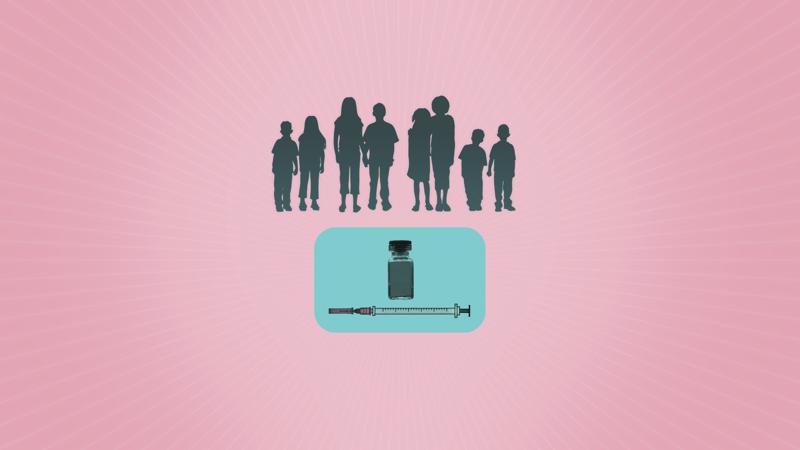
1640238578.jpeg)
Is the COVID-19 vaccine safe for children?
Yes, US regulators authorized Pfizer’s vaccine for younger children after millions of 12- to 17-year-olds already safely got the shot, the only one available for children in the country.
More than 5 million children ages 5 to 11 have gotten a first dose since early November, and US government safety monitoring has not uncovered any surprise problems.
This age group gets kid-size doses of the Pfizer-BioNTech vaccine, a third of the amount used to vaccinate everyone 12 or older. The Food and Drug Administration cleared the shots based on a study showing the kid-size doses were 91% effective at preventing symptomatic COVID-19. The 5- to 11-year-olds developed virus-fighting antibodies as strong as those of teens and young adults who got regular doses, with similar or fewer annoying reactions such as sore arms, fever or achiness.
The FDA assessed the safety of the kid-size doses in 3,100 vaccinated youngsters. Regulators deemed that enough data, considering the trove of safety information from hundreds of millions of larger doses given to adults and teens worldwide.
Very rarely, teens and young adults given the Pfizer vaccine or a similar one made by Moderna experience a serious side effect, heart inflammation, or what doctors call myocarditis. It’s mostly in young men or teen boys, and usually after the second dose. They tend to recover quickly, and after intense scrutiny US health authorities concluded the vaccine’s benefits outweigh that small risk.
The US Centers for Disease Control and Prevention is looking into a handful of reports of heart inflammation, mostly mild and brief, among 5- to 11-year-olds since vaccinations of that age group began.
To put the risk in context, COVID-19 also causes heart inflammation, often a more severe kind, said Dr. Matthew Oster, a pediatric cardiologist at Emory University. It also sometimes occurs in children who get a multisystem inflammatory syndrome after a coronavirus infection.
Before the pandemic, doctors regularly diagnosed heart inflammation caused by bacterial or viral infections or medications, again mostly in teen boys and young men. Oster said one theory is that testosterone and puberty play a role, which is partly why many experts expect any vaccine-related risk would be lower for younger kids getting a smaller dose.

Is the COVID-19 vaccine safe for children?
Yes, US regulators authorized Pfizer’s vaccine for younger children after millions of 12- to 17-year-olds already safely got the shot, the only one available for children in the country.
Those ages 5 to 11 will get just a third of the dose given to teens and adults. The Food and Drug Administration cleared the kid-size doses Friday, and next the Centers for Disease Control and Prevention will recommend who should get them.
A study found kid-size doses of the Pfizer-BioNTech vaccine were 91 percent effective at preventing symptomatic COVID-19. The 5- to 11-year-olds developed virus-fighting antibodies as strong as teens and young adults who got regular doses, with similar or fewer annoying reactions such as sore arms, fever or achiness.
The FDA assessed the safety of the kid-size doses in 3,100 vaccinated youngsters. Regulators deemed that enough data, considering the trove of safety information from hundreds of millions of larger doses given to adults and teens worldwide.
Very rarely, teens and young adults given the Pfizer vaccine or a similar one made by Moderna experience a serious side effect, heart inflammation, or what doctors call myocarditis. It’s mostly in young men or teen boys, and usually after the second dose. They tend to recover quickly, and after intense scrutiny US health authorities concluded the vaccine’s benefits outweigh that small risk.
To put the risk in context, COVID-19 also causes heart inflammation, often a more severe kind, said Emory University pediatric cardiologist Dr Matthew Oster. It also sometimes occurs in children who get a multisystem inflammatory syndrome after a coronavirus infection.
Before the pandemic, doctors regularly diagnosed heart inflammation caused by bacterial or viral infections or medications, again mostly in teen boys and young men. Oster said one theory is that testosterone and puberty play a role, which is partly why many experts expect any vaccine-related risk would be lower for younger kids getting a smaller dose.